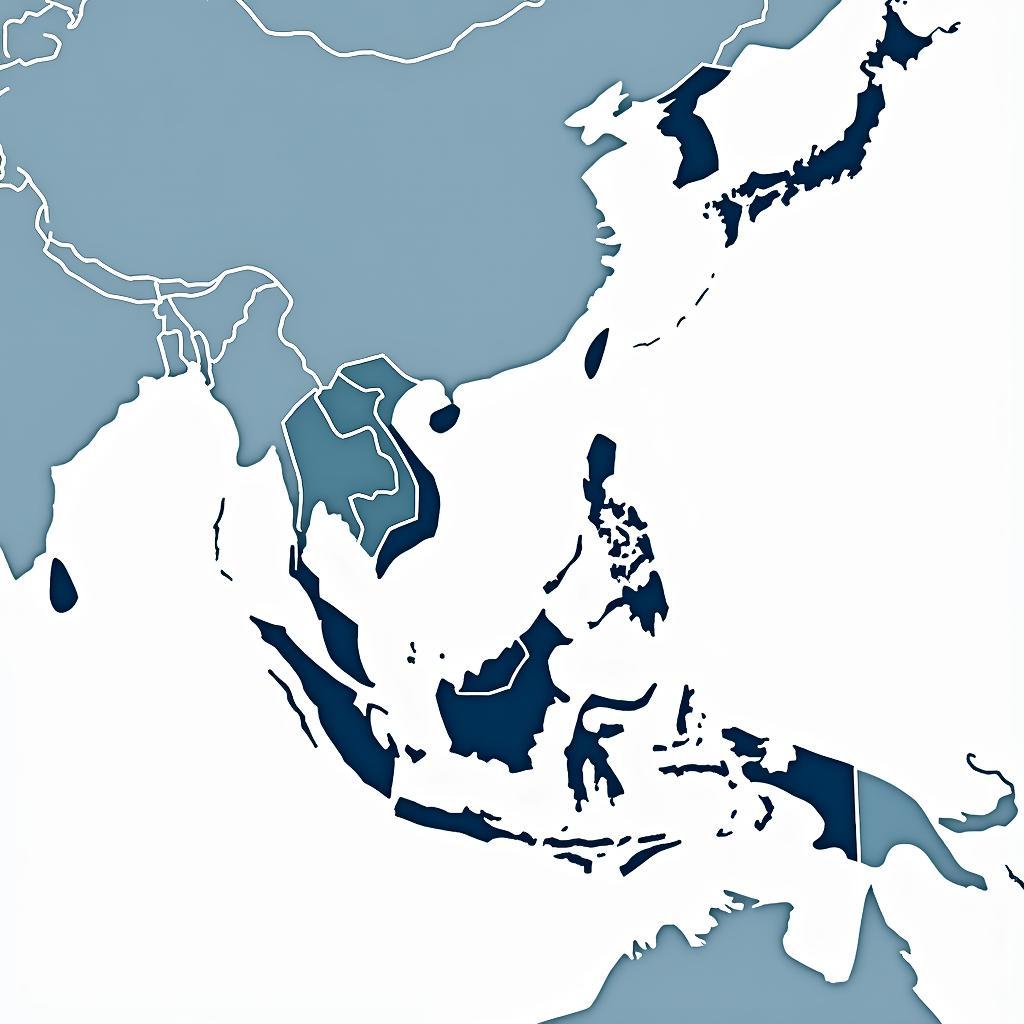The ASEAN Banking Integration Framework (ABIF), spearheaded by the Asean Banking Integration Working Group, represents a significant step towards a more integrated and robust ASEAN financial sector. This initiative aims to foster greater financial stability, enhance regional competitiveness, and deepen financial inclusion within the ASEAN Economic Community (AEC).
Understanding the Role of the ASEAN Banking Integration Working Group
The ASEAN Banking Integration Working Group plays a pivotal role in the realization of ABIF’s objectives. Comprising high-level representatives from ASEAN central banks and financial regulatory authorities, the working group is responsible for:
- Developing the strategic direction and roadmap for ASEAN banking integration. This involves setting clear targets, timelines, and implementation plans.
- Coordinating and collaborating with relevant stakeholders. This includes engagement with the banking industry, other ASEAN sectoral bodies, and international organizations.
- Monitoring progress and addressing challenges. This involves conducting regular reviews, identifying bottlenecks, and proposing solutions to ensure the smooth implementation of ABIF.
Key Objectives and Initiatives of ABIF
ABIF focuses on three key strategic thrusts:
-
Strengthening regional banking regulations and supervisory frameworks. This includes harmonizing prudential standards, enhancing cross-border supervisory cooperation, and promoting financial stability within the region.
 ASEAN Banking Harmonization
ASEAN Banking Harmonization -
Facilitating greater cross-border banking activities and financial services liberalization. This aims to improve market access for ASEAN banks, encourage cross-border investments, and expand the range of financial services available to businesses and individuals within the region.
 ASEAN Cross-Border Banking
ASEAN Cross-Border Banking -
Promoting financial inclusion and literacy. This involves initiatives to improve access to financial services for underserved segments of the population, such as micro, small, and medium enterprises (MSMEs) and individuals in rural areas.
Benefits and Challenges of ASEAN Banking Integration
A more integrated ASEAN banking sector offers numerous potential benefits:
- Enhanced financial stability: Harmonized regulations and closer supervisory cooperation can mitigate systemic risks and enhance the resilience of the ASEAN financial system.
- Increased competitiveness: A more integrated market fosters greater competition, leading to innovation and improved efficiency within the banking sector. This benefits consumers and businesses alike through better products, services, and pricing.
- Deeper financial inclusion: Increased access to financial services empowers individuals and businesses, particularly MSMEs, fostering economic growth and reducing poverty.
- Stronger regional economic integration: ABIF complements other AEC initiatives, contributing to the creation of a single market and production base.
However, challenges remain in achieving seamless ASEAN banking integration:
- Differing levels of economic development and financial market maturity across ASEAN member states necessitate a calibrated and phased approach to integration.
- National interests and concerns over sovereignty require careful negotiation and compromise among member states to ensure consensus-based decision-making.
- The need for capacity building and technical assistance is crucial to support less developed member states in implementing the necessary regulatory reforms and strengthening their supervisory frameworks.
The Future of ASEAN Banking Integration
The ASEAN Banking Integration Working Group continues to play a crucial role in driving the ABIF agenda forward. Moving forward, the working group will need to address the challenges of:
- Deepening integration in key areas such as cross-border payments and settlements.
- Leveraging technology to promote financial inclusion and enhance the efficiency of cross-border banking operations.
- Strengthening cooperation with dialogue partners and international organizations to share best practices and learn from global experiences in financial integration.
“The success of ASEAN banking integration hinges on striking a balance between ambition and pragmatism,” states Dr. Lim Cheng Hock, a leading economist specializing in ASEAN financial markets. “While the journey requires navigating complex challenges, the potential rewards for ASEAN citizens and businesses are significant.”
Conclusion
The ASEAN Banking Integration Working Group is paving the way for a more integrated and resilient ASEAN financial sector. By fostering regulatory harmonization, facilitating cross-border banking, and promoting financial inclusion, ABIF aims to unlock the full potential of the ASEAN Economic Community. While challenges remain, the commitment of ASEAN member states to this ambitious agenda reflects their shared vision of a more prosperous and integrated region.
FAQs about the ASEAN Banking Integration Working Group
1. What is the composition of the ASEAN Banking Integration Working Group?
The working group comprises high-level representatives from central banks and financial regulatory authorities of all ten ASEAN member states.
2. What is the role of the ASEAN Secretariat in supporting banking integration?
The ASEAN Secretariat provides technical and logistical support to the working group, facilitates dialogue among member states, and monitors progress on the implementation of ABIF initiatives.
3. How does ASEAN banking integration benefit consumers and businesses?
Integration promotes competition, leading to a wider range of financial products and services at potentially more competitive prices. It also facilitates cross-border business activities and investments.
4. What is the timeline for achieving full ASEAN banking integration?
ABIF follows a phased approach with no fixed timeline for full integration. The pace of integration depends on the consensus and readiness of ASEAN member states.
5. How does ASEAN banking integration address financial inclusion?
ABIF includes initiatives to improve access to financial services for underserved segments of the population, such as MSMEs and individuals in rural areas. This is achieved through promoting innovative financial products and services, financial literacy programs, and leveraging technology.
Need help navigating the complexities of ASEAN banking integration? Contact us at:
Phone Number: 0369020373
Email: aseanmediadirectory@gmail.com
Address: Thon Ngoc Lien, Hiep Hoa, Bac Giang, Vietnam.
Our dedicated customer support team is available 24/7 to assist you.

